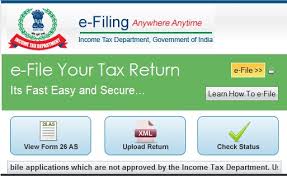
Direct credit to bank accounts of taxpayers is the only way the income tax department credits tax refunds.
Filed your income tax return (ITR) for the assessment year (AY) 2019-20 on time but yet not receive your refund? Don’t worry. You may just have furnished incorrect bank details. Of course, there may be other reasons for the delay, though this is the most prominent.
Earlier, tax refund was issued either in the form of a cheque or directly credited to bank accounts. However, direct credit to bank accounts of taxpayers is the only one mode through which the income tax department credits tax refunds. These accounts need to be pre-validated and linked to the taxpayers’ permanent account number (PAN) from this assessment year.
Taxpayers are entitled to claim a tax refund if, during the year, excess tax has been deducted from your income. This may happen if there are multiple incomes. But, you have to apply for a refund while filing your ITR for a particular financial year.
Track the status
You can check the status of your refund. A few years ago, to find the status of a tax refund one had to approach the assessing officer. But now, you can do so in minutes. After filing returns, a taxpayer will need to wait utmost for a few months to receive the refund.
You can visit these websites to check their tax refund status: www.incometaxindia.gov.in or www.tin-nsdl.com. Go to the “Status of Tax Refunds” tab, give your PAN number and the assessment year for which you wish to track the status of refund. A message will pop up, stating the mode of payment, a reference number, status and the date of refund. Of course, these will happen only if the refund has been processed.
However, if there is any problem due to which tax refund not received, there would be a suitable message. For e.g., if the message is “refund unpaid,” it could be due to the incorrect bank account details (account number or IFS Code) you may have submitted to the income tax department. Verify the bank account details submitted earlier.
You need to provide information on all the savings and current accounts held at any time in India during the previous year, according to income tax rules. Details of accounts that have been inoperative for at least three years or more are not required.
The taxpayer is supposed to provide one bank account in which she/he wants the tax refund credited. You have to provide this detail even if there is no refund. Bank details include the name of the bank, account number, and the 11-digit IFS Code or details of the international bank account number (IBAN) in case you have a foreign bank account. Not providing any bank account details will result in refunds not getting credited.





